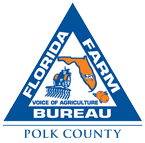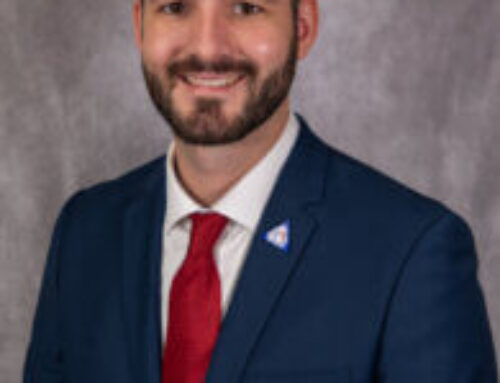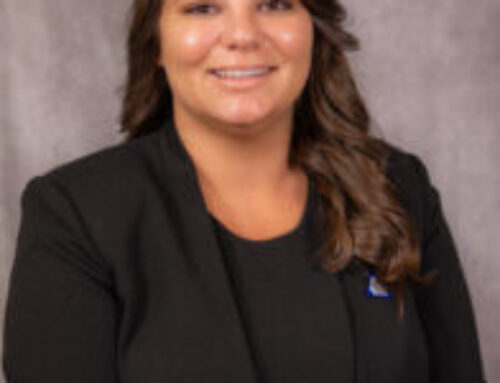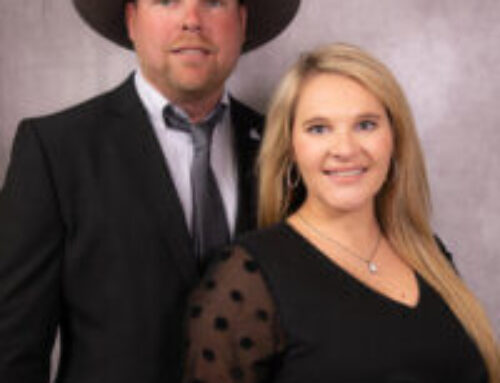Ag Talk
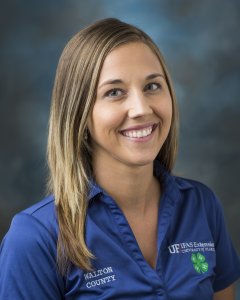

Cheyenne Duncan was a fast-rising 4-H star in Walton County. Then, her freshman year of high school happened.
While she was 14, her parents divorced, she was bullied at school, her father was deployed and she was in an abusive relationship. Her prize-winning goat died. Her show horse got injured and could no longer compete.
Things were so bad that there was concern she was suicidal. 4-H agent Jena Brooks Gilmore encouraged Cheyenne’s mom to send her to Camp Timpoochee as a junior camp counselor.
Maybe it was the week away. Maybe it was the opportunity to lead. Maybe it was that she learned what it was like to be admired by other kids again instead of bullied. By the end of the week, Cheyenne had a tear-filled heart-to-heart with Gilmore. Just the two of them on a camp bench. And Cheyenne said, “This 4-H stuff really works! I can be myself here, really my true self and everyone is okay with that.”
This 4-H success story began three years ago when Gilmore became the UF/IFAS Extension 4-H agent and Joe Johnson became the Walton County Farm Bureau president.
Gilmore had returned to the area where she’d grown up in a farm family and inherited a 4-H program with 65 club members and no link to the Farm Bureau. Johnson brought with him to the presidency a conviction that we’ve raised a generation without a work ethic. As he saw it, exposure to farming and livestock was the best way to save the next one from the same fate.
Gilmore started showing up at Farm Bureau meetings. The two of them quickly found common ground. The Farm Bureau bought 4-H jackets for members, T-shirts for an annual Farm Safety Day for kids that Gilmore and Johnson organized, and beekeeping equipment so kids could work a hive.
The Farm Bureau gave Cheyenne and other 4-Hers scholarships to attend Camp Timpoochee.
It granted 4-H a dollar-a-year lease for Farm Bureau land near the fairgrounds. Gilmore is asking for county permission to put an outdoor arena on it so kids can practice showing animals.
Johnson calls Gilmore a “blessing” for Walton County and insists ag is in her genetics.
Now there are 159 4-Hers in Walton County clubs, and there are multiple new clubs. There are nearly 1,000 more kids in 4-H activities of any kind – clubs, camps, speech contests and embryology projects – than there were when Gilmore started the job. Kids are showing animals at the fair again. Locals have an increased understanding of how much agriculture means to their community.
A few weeks after camp, Cheyenne’s mom visited Gilmore. The mom was crying. She told Gilmore, “Thank you. I don’t know what you did, but thank you for bringing my baby back.”
Cheyenne spoke at last year’s Farm Bureau meeting. She brought several people to tears with her emotional account of her Farm Bureau-aided journey. When she finished, she brought everyone to their feet for a standing ovation.
These testimonials from Gilmore and her 4-Hers have become a much anticipated feature of annual Farm Bureau meetings, and attendance is way up.
Just as Farm Bureau has helped reinvigorate 4-H, so, too, has 4-H reignited interest in the Farm Bureau. The two have done together what neither of them had been doing apart. Walton County demonstrates that a great UF/IFAS-Farm Bureau partnership matters so much because it helps change the lives of people like Cheyenne. Sometimes, it might even save them.
Jack Payne is the University of Florida’s senior vice president for agriculture and natural resources and leader of the Institute of Food and Agricultural Sciences.
